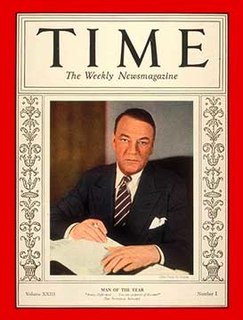A Quote by Ben Bernanke
The Fed's policy choices can always be debated, but the quality and commitment of the Federal Reserve as a public institution is second to none, and I am proud to lead it.
Related Quotes
Transparency concerning the Federal Reserve's conduct of monetary policy is desirable because better public understanding enhances the effectiveness of policy. More important, however, is that transparent communications reflect the Federal Reserve's commitment to accountability within our democratic system of government.
If the Federal Reserve pursues a policy which Congress or the President believes not to be in the public interest, there is nothing Congress can do to reverse the policy. Nor is there anything the people can do. Such bastions of unaccountable power are undemocratic. The Federal Reserve System must be reformed, so that it is answerable to the elected representatives of the people.
From the Great Depression, to the stagflation of the seventies, to the current economic crisis caused by the housing bubble, every economic downturn suffered by this country over the past century can be traced to Federal Reserve policy. The Fed has followed a consistent policy of flooding the economy with easy money, leading to a misallocation of resources and an artificial 'boom' followed by a recession or depression when the Fed-created bubble bursts.
First reason is, it's not authorized in the Constitution, it's an illegal institution. The second reason, it's an immoral institution, because we have delivered to a secretive body the privilege of creating money out of thin air; if you or I did it, we'd be called counterfeiters, so why have we legalized counterfeiting? But the economic reasons are overwhelming: the Federal Reserve is the creature that destroys value.





























